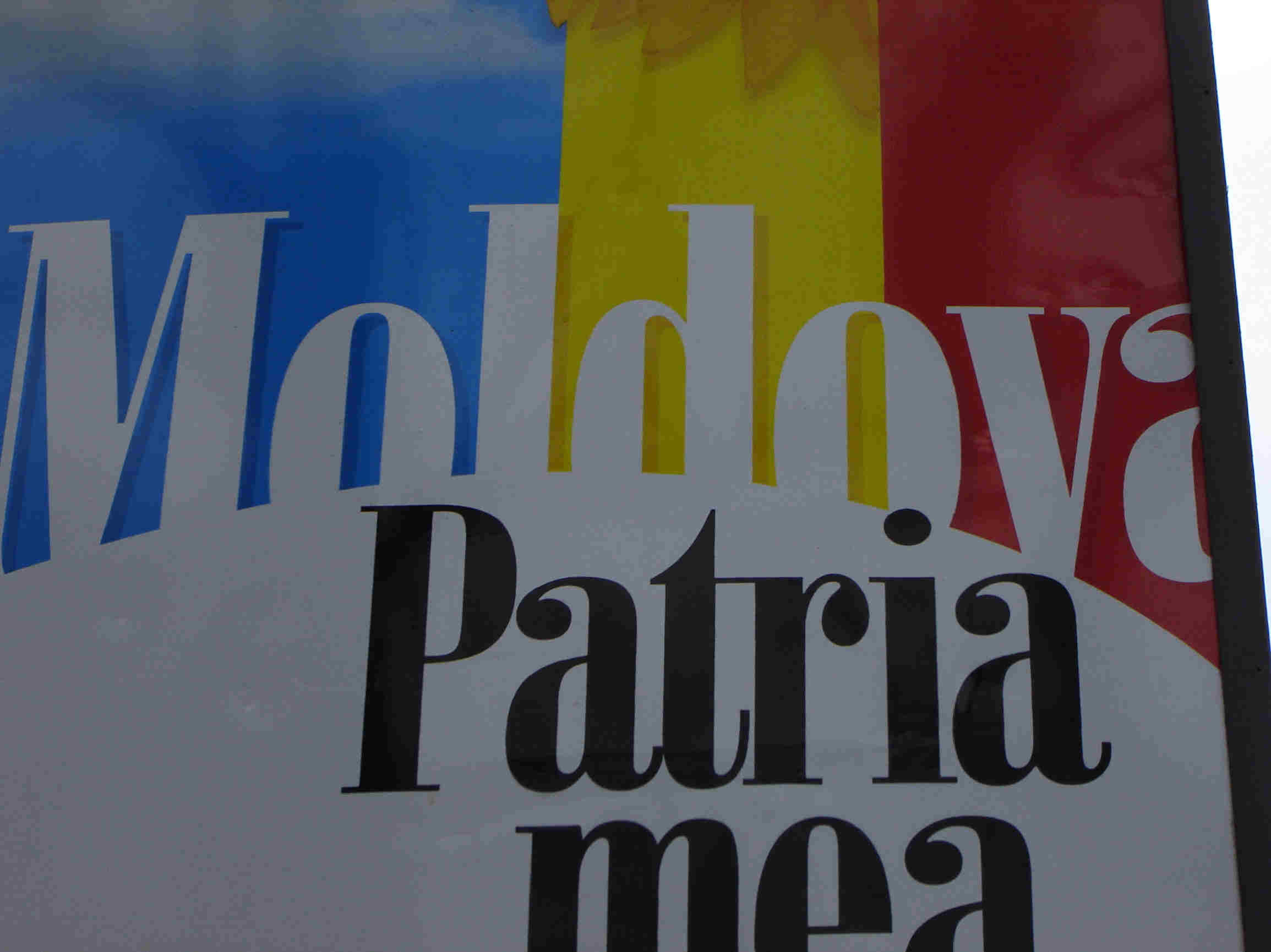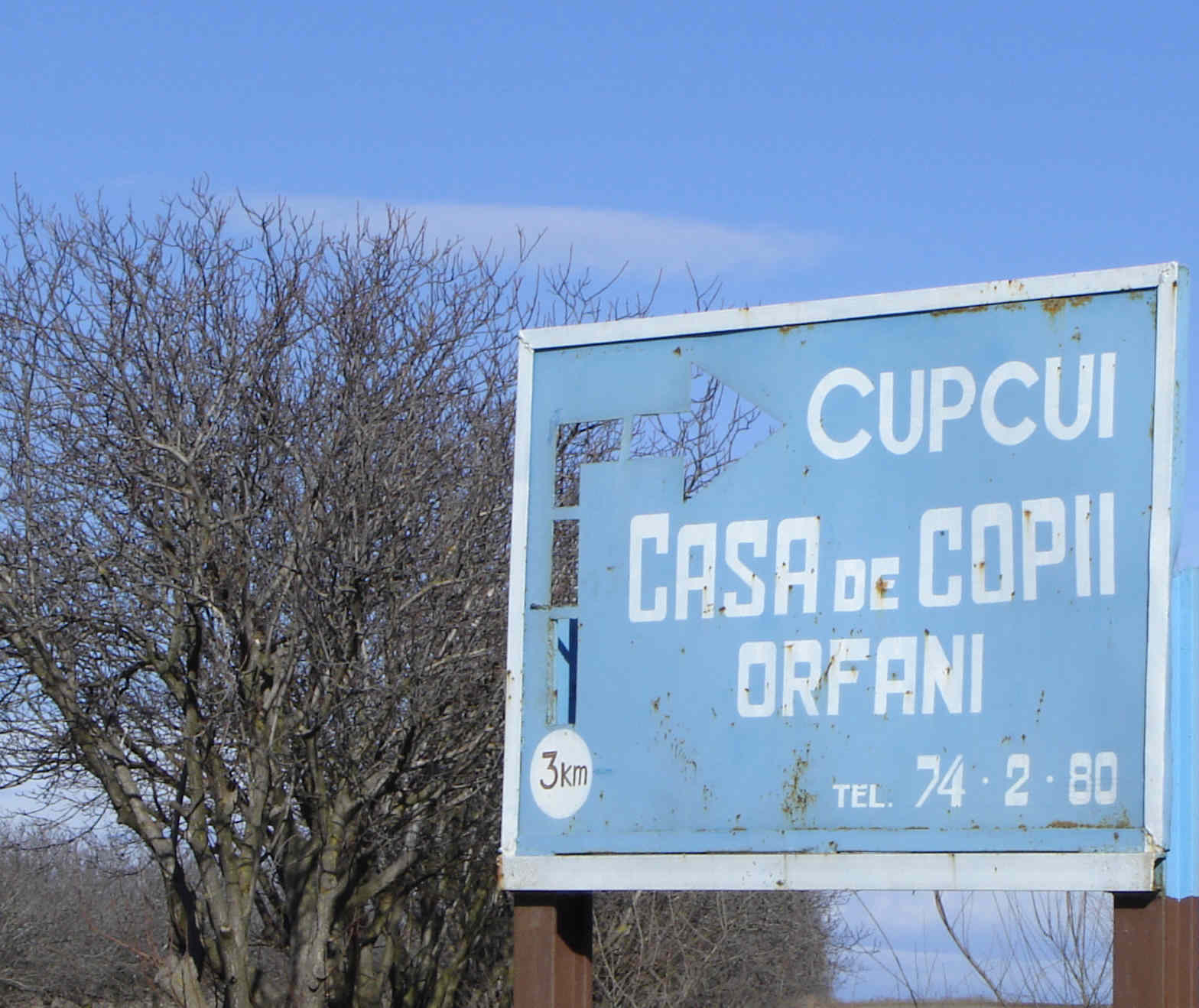 Sign for the Cass de Copiii
(Children's Home) in Cupcui
Sign for the Cass de Copiii
(Children's Home) in Cupcui
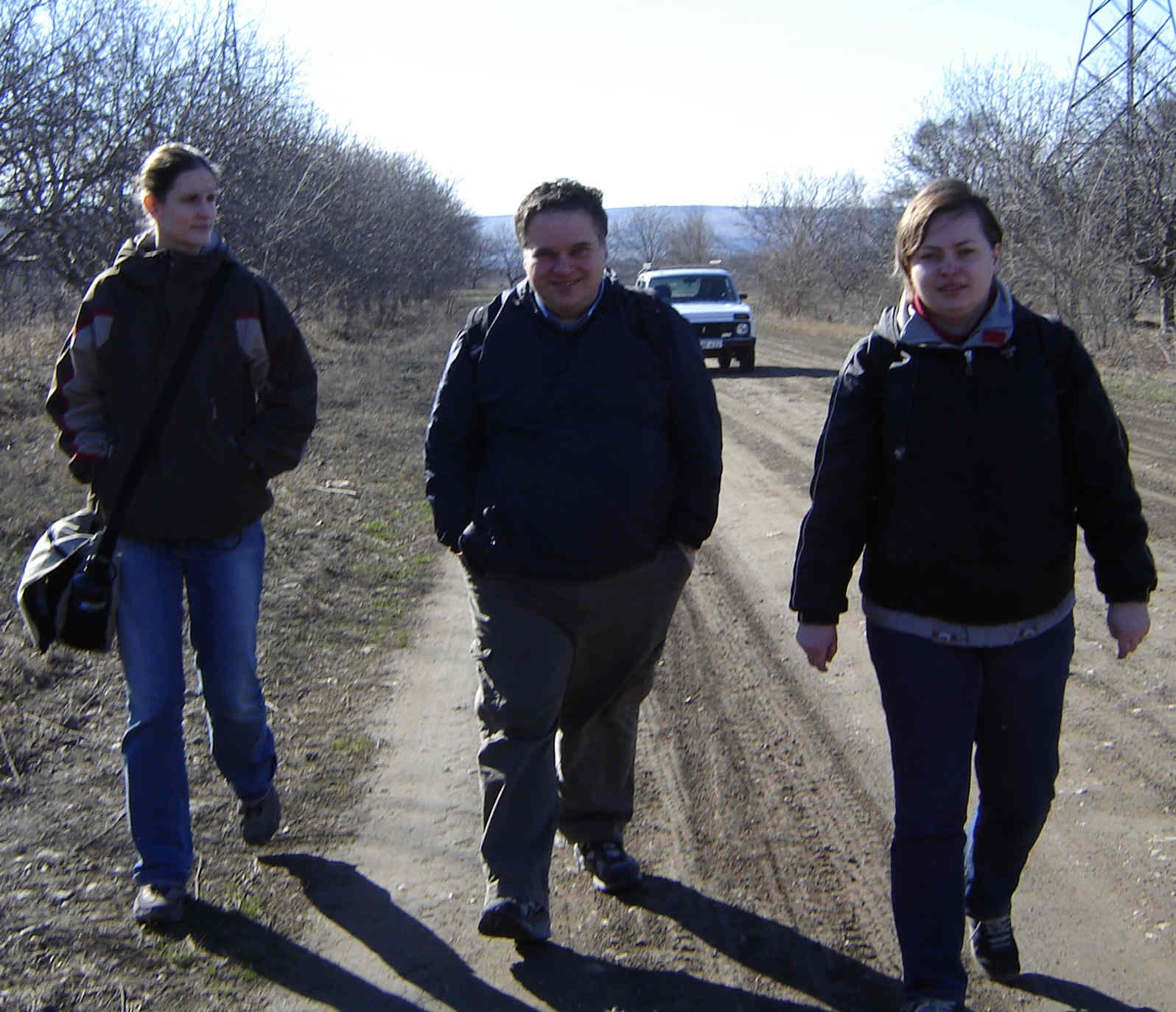 Breanne, me and Irina walking to
Cupcui
Breanne, me and Irina walking to
Cupcui
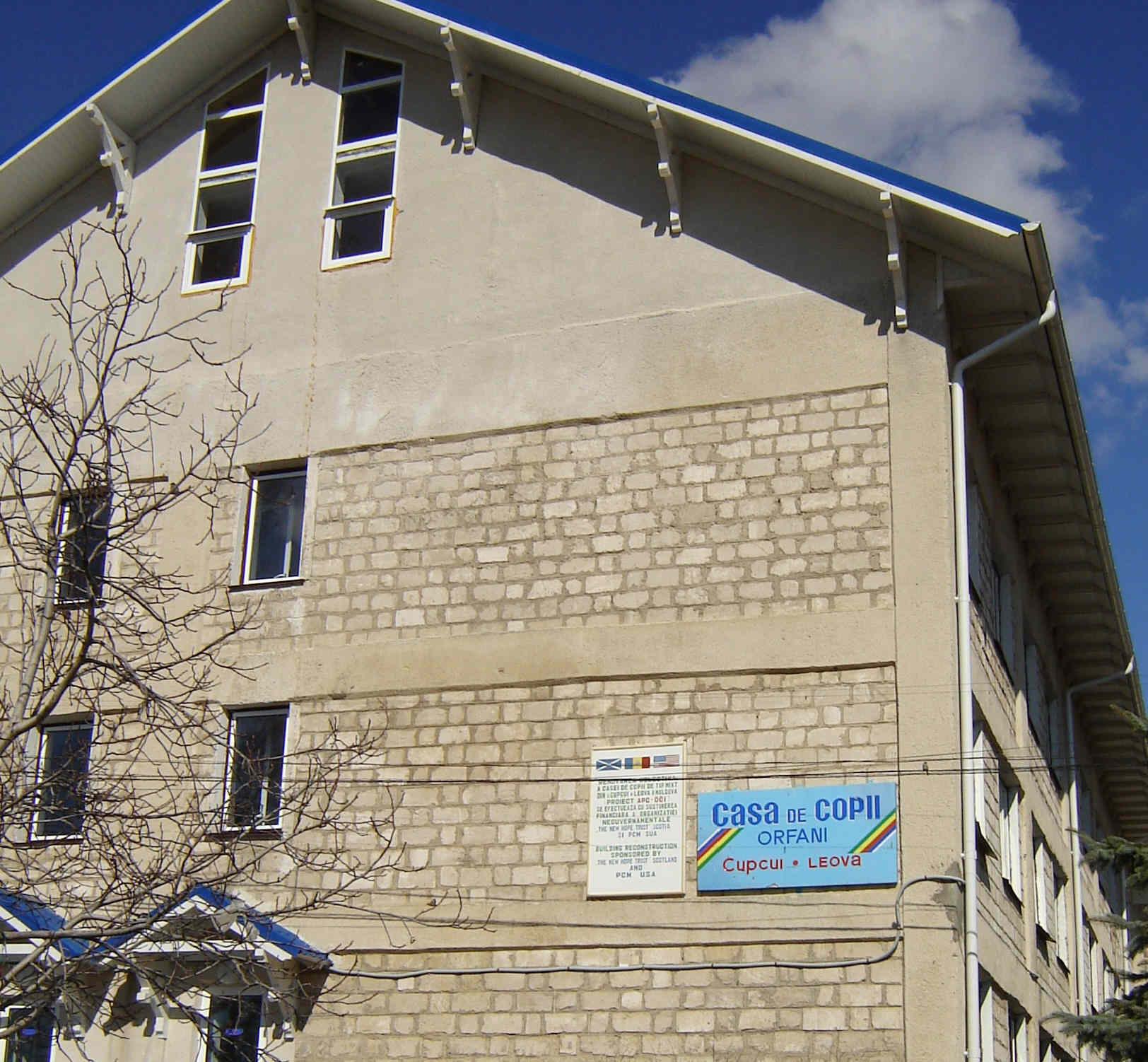 The Casa de Copii in Cupcoi
The Casa de Copii in Cupcoi
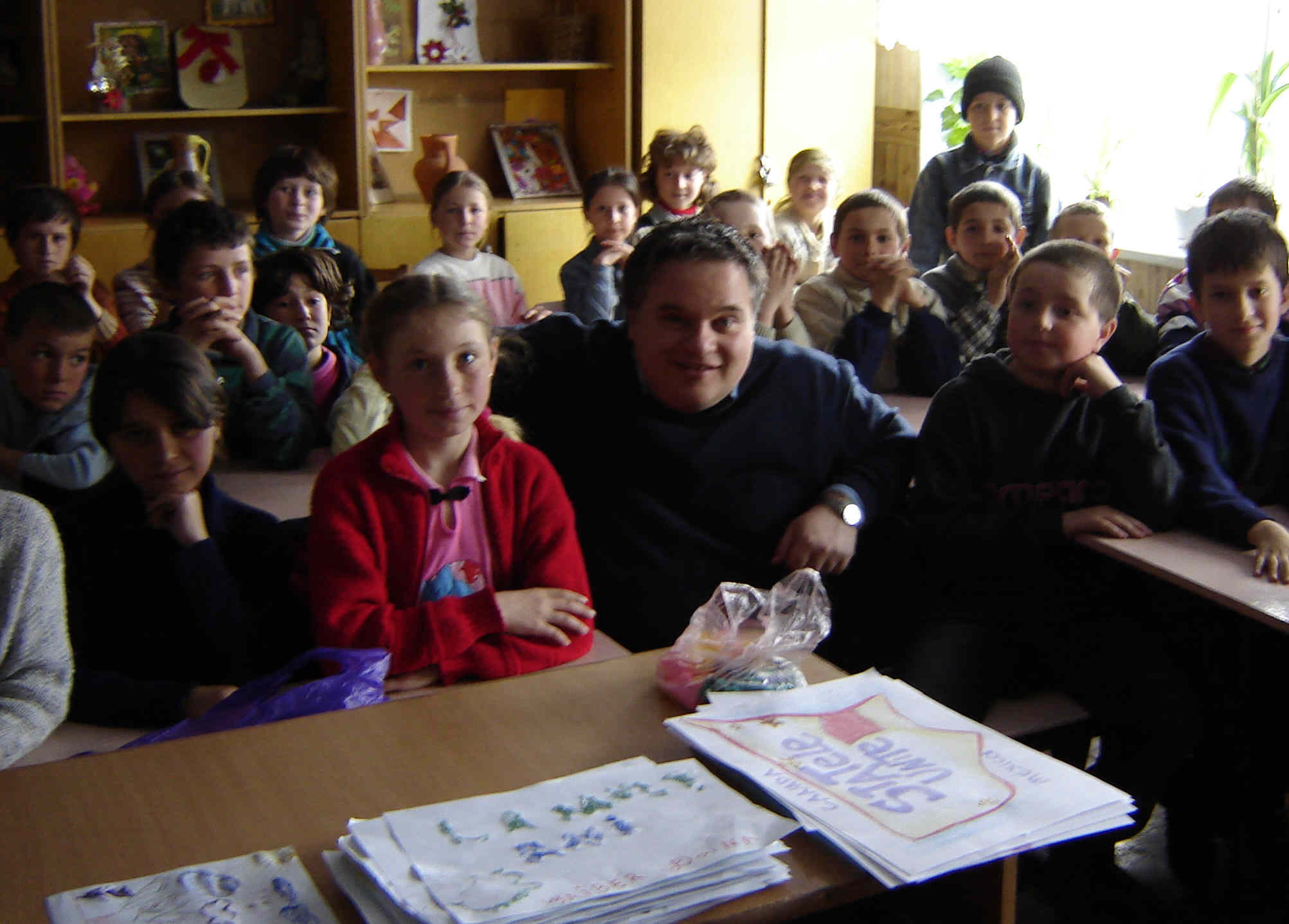 With the primary school children (orphans and villagers) in Cupcoi.
With the primary school children (orphans and villagers) in Cupcoi.
|
|
17 June...A tough writing assignment...for some
months I have discussed the problems related to children living in
institutions in Moldova but I have put off writing fully about it for a
variety of reasons--I got busy with exams, I had visitors, I made some
trips myself, and to be completely honest, I had yet to figure out what
it all meant. I have taken a long time in writing about it because
I have found it a topic that is both intellectually and emotionally
challenging as well as being logistically difficult to research.
When I first heard about orphans in Moldova, I looked at it as an issue,
a way to understand the social and economic situation here. As I
have delved more more fully into it, I have found it to have been both a
frustrating and rewarding experience for me. First, let discuss my
visits to Case de Copiii (chidrens homes). I have visited four
since coming to Moldova and would have gone to more if access had been
easier. Conditions vary widely depending on whether or not the
institution has a sponsor or not. Those that
had sponsors (either local businesses or outsiders such as mission
groups) were in far better condition than those run by the government
alone. Some had progressive ideas and others were closed to
outsiders--a full range of facilities were evident (from filthy outhouses to
brand new washing machines). Overall, I found that the people
taking care of the children cared about their welfare and generally
treated the children well.
The first home I visited was in the village of Cupcoi. My
friend Irina made arrangements in March for us to visit and we were
joined by Irina's sister, Nadia and a Peace Corps volunteer, Breanne
Svethla. We made a short presentation on the U.S. and common
English words (a presentation we repeated in other places). And
then gave the children drawing supplies and watched them draw. In
Cupcoi, the orphanage was also the village primary school so the orphans mixed
freely with the village children in school. One thing that is
somewhat misleading about the orphan population is that many of the
"orphans" still have families but their relatives do not have
enough
money to take care of the children so they go away to the orphanage as a
sort of "boarding school." Even so, about 50% of the children
ranging from 7 to 17 in this particular orphanage were claimed by no
one. The facility had been modernized through gifts from a
Christian mission organization based in Scotland and Alabama.
The second trip included three orphanages, all in the self-proclaimed
Republic of Transnistria. Here the conditions varied widely and at
our first stop, we were turned away because the director was worried
that we might be disruptive (maybe she thought we were spies). The
second facility was a campus of 3 or 4 buildings and had the smell of an
institution. There were around 200 children, many of whom needed
to touch us and crowd in with us. It was fairly typical of the
descriptions that I have read about Eastern European orphanages and the
children, while adequately provided for, did not seem to be well
socialized.
The buildings were in fair condition despite the odor and the meals
looked good (we came unannounced). But it was a tragedy seeing so many
children without families and the Transnistrian authorities do not
allow adoptions unless the child is very sick. We were told that
the children were educated just like any other child in the region with
the exception that they were not taught foreign languages or science,
reason being was that they could learn these subjects (but I wonder if
they could learn them if they had some individualized attention).
Finally we visited a home built by a local woman with support from
Ireland that was lovely. She cared mostly for babies and toddlers
and had several other people playing with the children and the home was
in nice condition.
The orphanages tend to be located out of the cities and it was quite
an ordeal to make arrangements to visit them. My friend, Irina
Nicorich, really was an angel in setting up the visits and she also
introduced me to a local non-profit organization, Clipa Siderala (Star
for a Moment). I will talk more about Clipa in another blog but
they are good people not only trying but actually making a difference in
Moldova. Salavat Jdanov, the founder of Clipa facilitated our
visit to the Transnistran homes--which is not easy.
How did these visits effect me? I guess as I try to put the pieces of the puzzle
together, I come to two thoughts one, personal, the other more
broad. Personally, it is overwhelming to think about
children abandoned and having so little to hope for in their futures and it makes it hard
for me to understand why I have so many advantages. That said, the second issue is
more universal for me as an American, you realize that we have so many
opportunities in the U.S. and that many, many people waste them.
Here, there are few opportunities and for orphans even less, it is hard
to see this reality and live with all the privileges that come from my
own reality. My two trips to Western Europe have confirmed this
frustration for me. I find myself thinking about the orphans quite a
lot, wishing to make an impact but not really knowing how. |
|
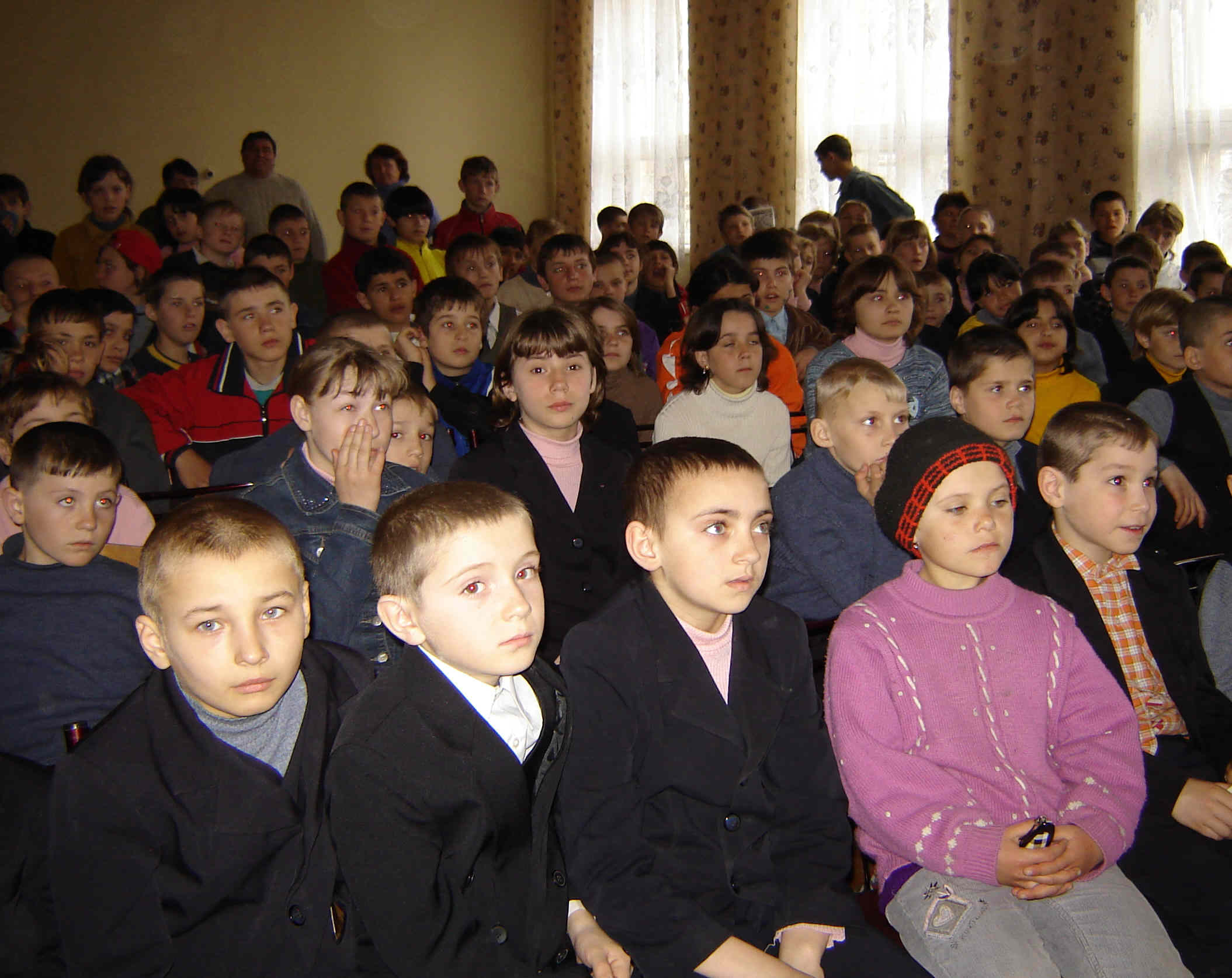 Among the
200+ children living in a government home in Transnistria Among the
200+ children living in a government home in Transnistria
.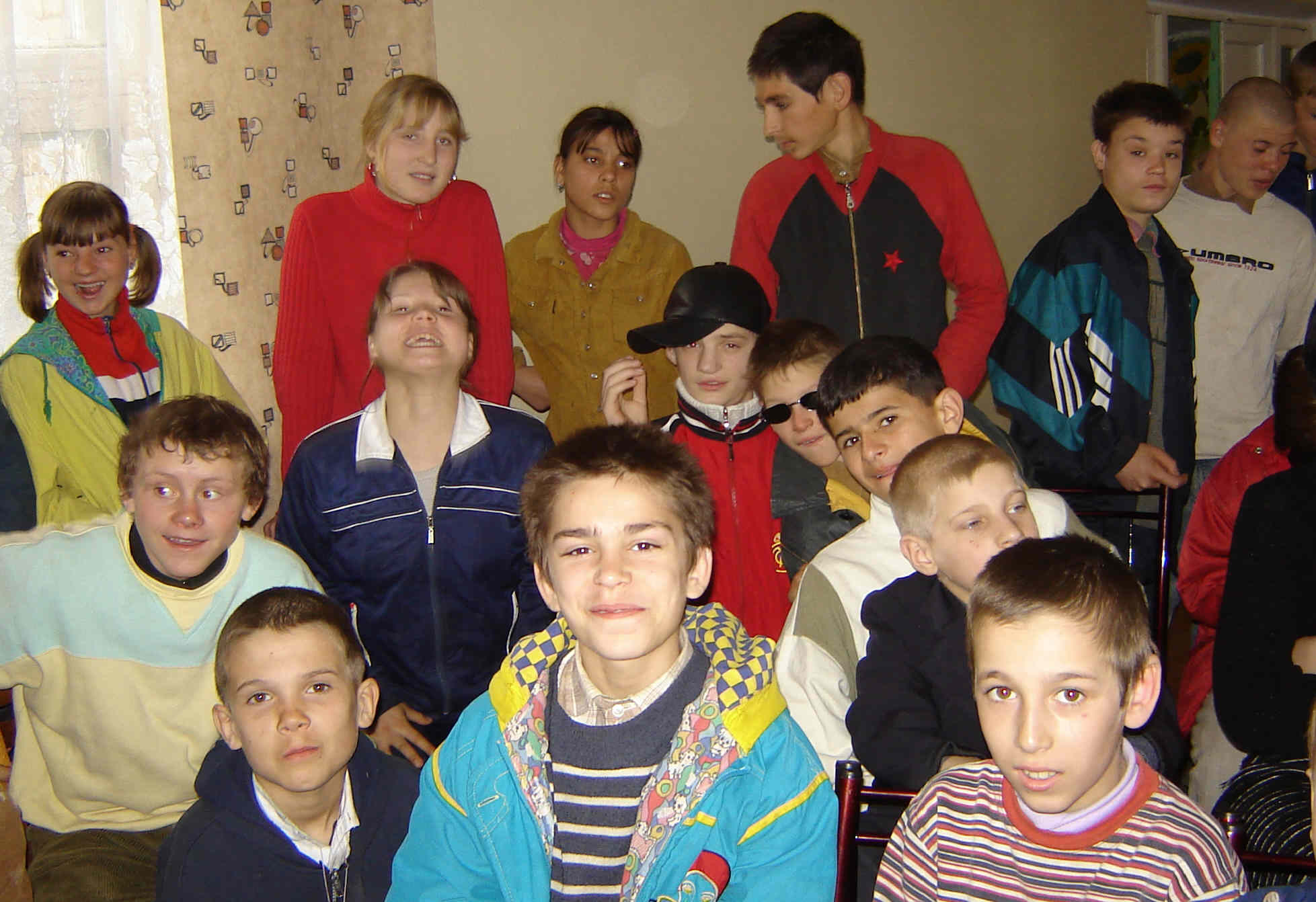 Kids waiting for the candies Salavat brought.
Kids waiting for the candies Salavat brought.
 Entrance to the orphanage.
Entrance to the orphanage.
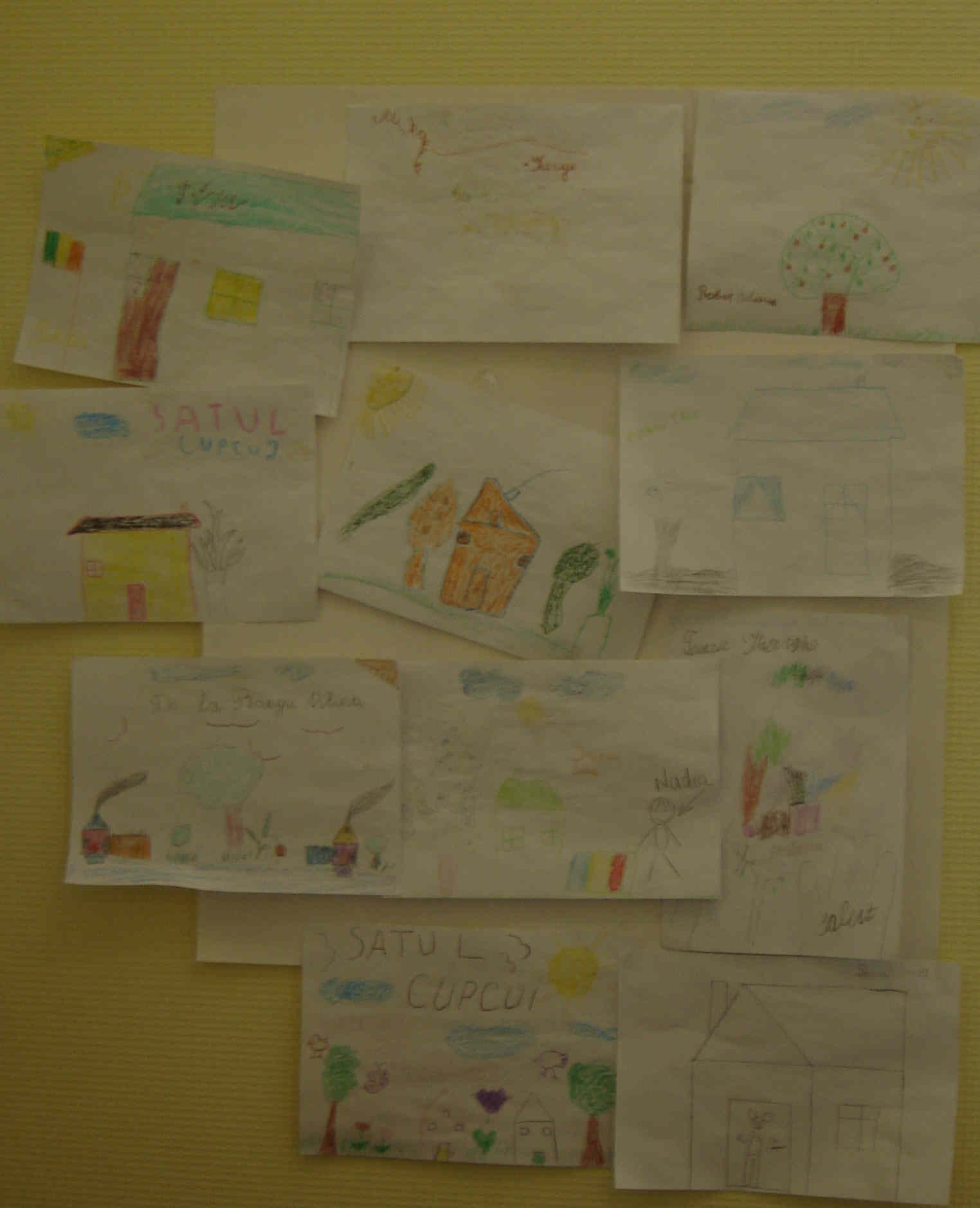
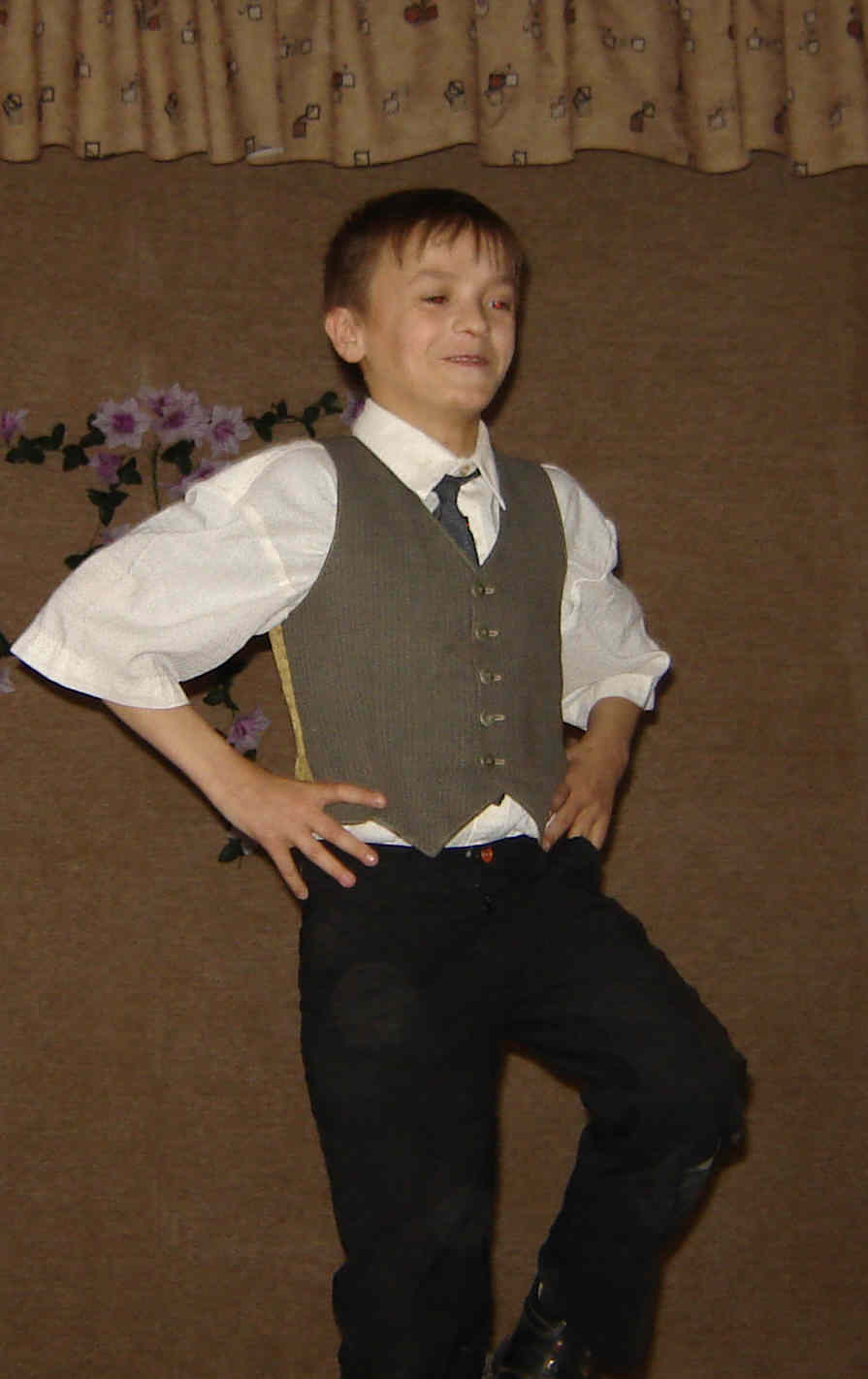 Art drawn by orphans in my apartment and a special dance by a little
fellow.
Art drawn by orphans in my apartment and a special dance by a little
fellow.
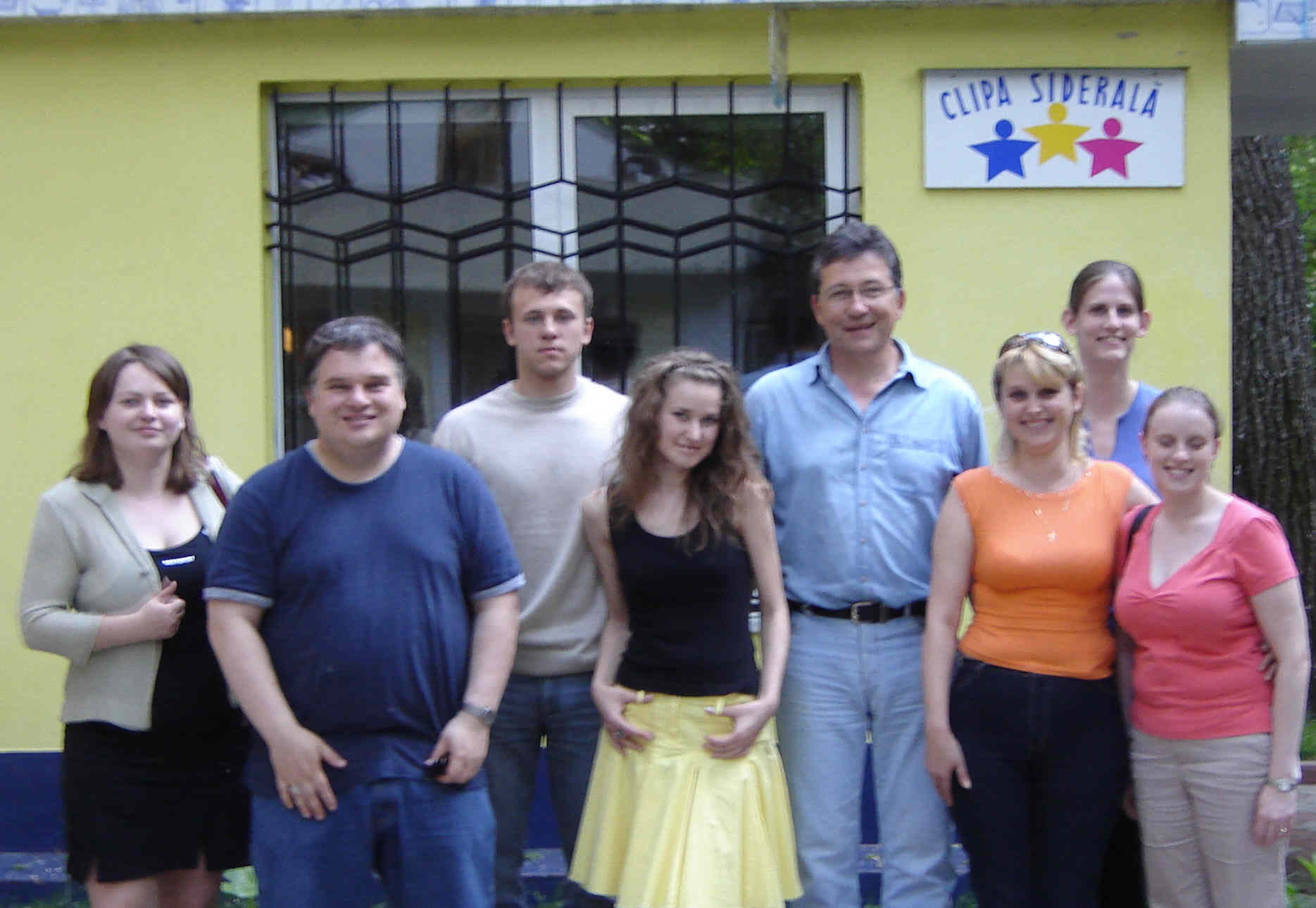 Staff and volunteers at Clipa Siderala
Staff and volunteers at Clipa Siderala
|
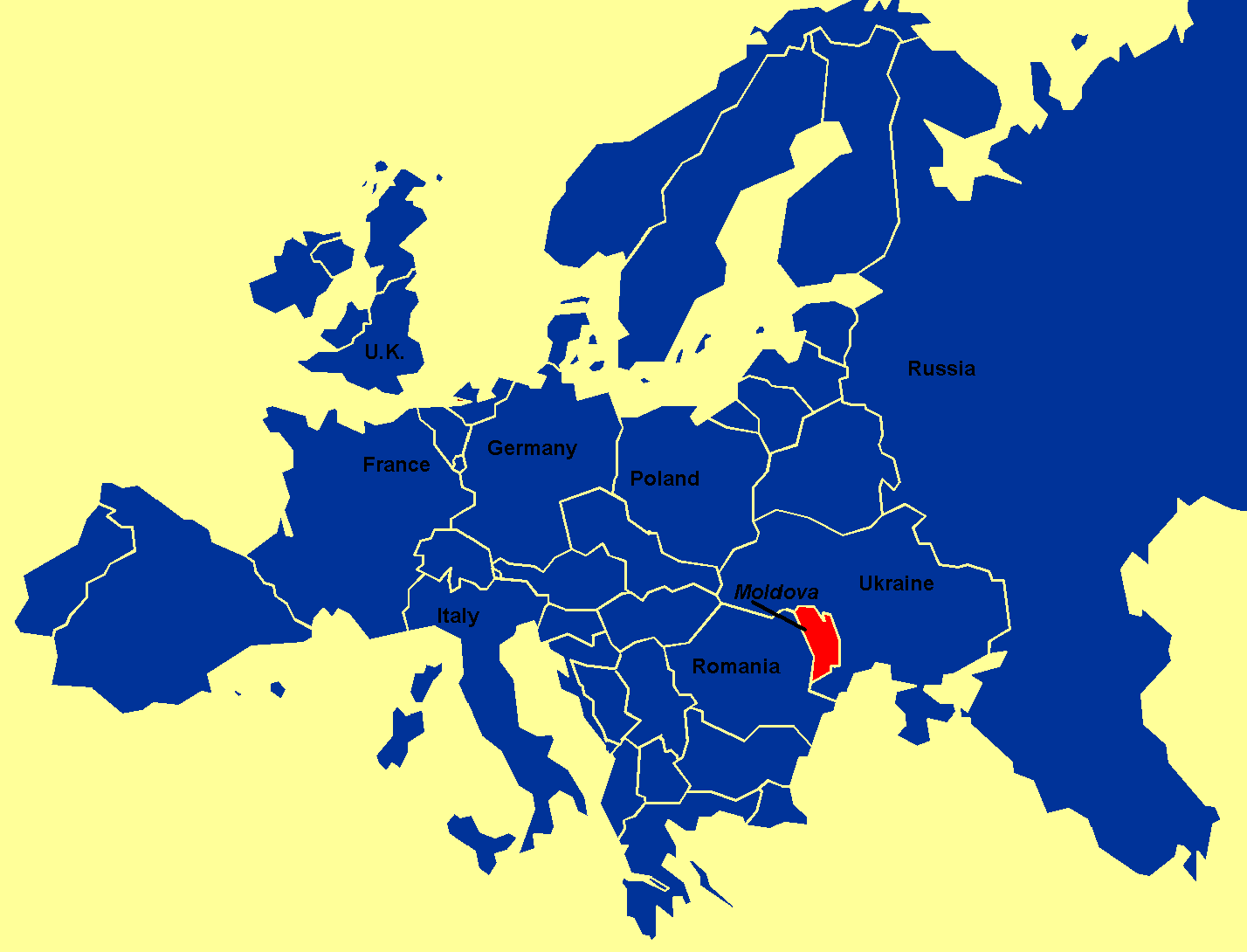
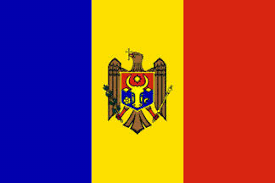
 Sign for the Cass de Copiii
(Children's Home) in Cupcui
Sign for the Cass de Copiii
(Children's Home) in Cupcui Breanne, me and Irina walking to
Cupcui
Breanne, me and Irina walking to
Cupcui The Casa de Copii in Cupcoi
The Casa de Copii in Cupcoi With the primary school children (orphans and villagers) in Cupcoi.
With the primary school children (orphans and villagers) in Cupcoi. Among the
200+ children living in a government home in Transnistria
Among the
200+ children living in a government home in Transnistria Kids waiting for the candies Salavat brought.
Kids waiting for the candies Salavat brought. Entrance to the orphanage.
Entrance to the orphanage.
 Art drawn by orphans in my apartment and a special dance by a little
fellow.
Art drawn by orphans in my apartment and a special dance by a little
fellow. Staff and volunteers at Clipa Siderala
Staff and volunteers at Clipa Siderala